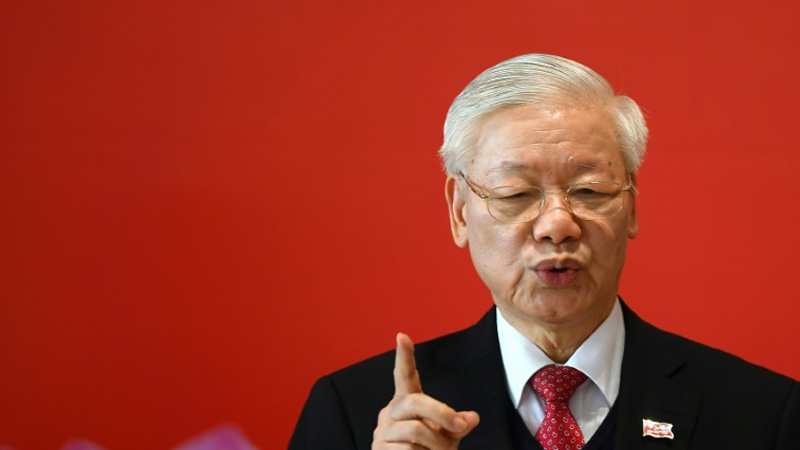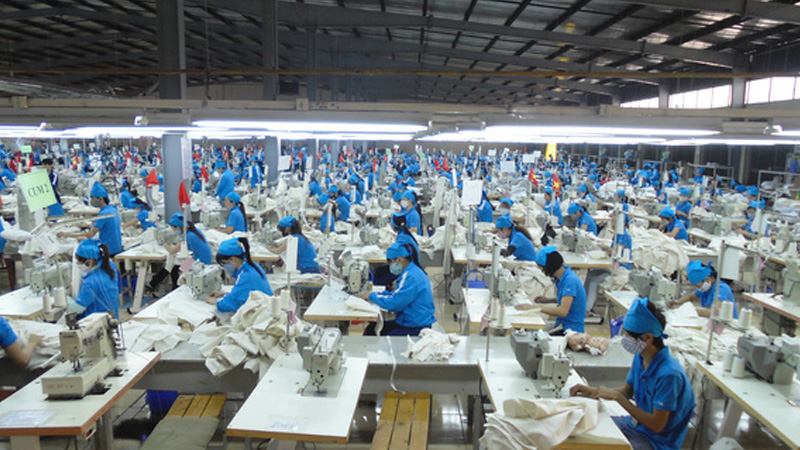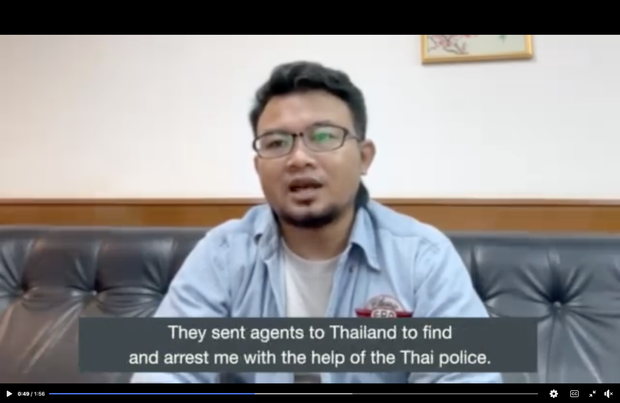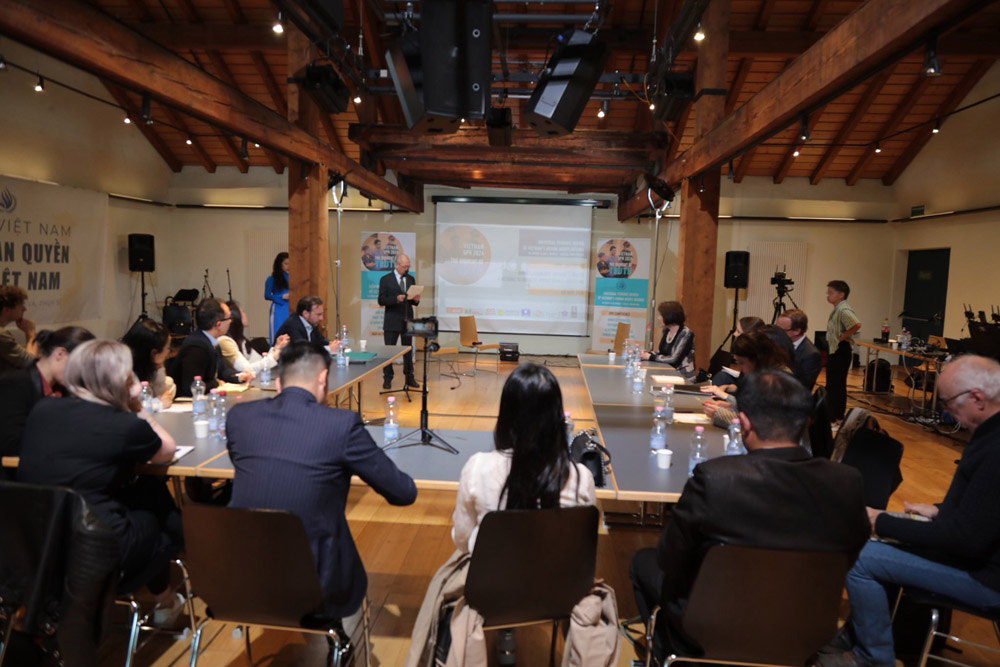June 11, 2015
Statement by Allen S. Weiner
Before the Congressional Caucus on Vietnam
United States House of Representatives
Good afternoon, honorable members of the Congressional Caucus on Vietnam, honorable Representatives, and ladies and gentlemen. It is an honor for me to appear before you today. I wish to thank you for the opportunity to speak on behalf of the Vietnamese men and women I represent, most of whom remain imprisoned in violation of their basic human rights, simply because they have engaged in peaceful forms of social and political activism. I am grateful to have the chance to speak in support of a very simple idea, namely, that the citizens of Vietnam deserve the international rights of peaceful political expression that are accepted around the world.
Overview
Three years ago, in July 2012, I filed a complaint before the United Nations Working Group on Arbitrary Detention (UNWGAD) in Geneva, contesting the illegal arrest and detention of seventeen Vietnamese social and political activists. The Working Group is a U.N. body with the mandate of trying to prevent the practice of arbitrary deprivation of liberty. The men and women covered by the petition I filed had been arrested during the course of the preceding year by the Vietnamese Government; it appears that the trigger for the arrests of these activists was their peaceful participation in online and other activities to advocate for governmental action on a broad range of human rights and social justice issues, including environmental, health, legal, political, land, and corruption-based concerns. Most of the petitioners are online journalists, bloggers, or others who have participated in training activities related to citizen journalism. They have written blog posts, signed petitions, and joined nonviolent protests related to such issues as calls for multiparty democracy and opposition to large-scale bauxite mining projects that would cause severe environmental damage and displace local residents. In short, they are engaged in legitimate forms of political expression. In addition, the men and women I represent are affiliated with the Roman Catholic Redemptorist Church in Vietnam. Eleven of the petitioners have also been charged as being members of Viet Tan, a Vietnamese pro-democracy party. All of these individuals were initially held incommunicado, and they have since been convicted – with limited legal representation at best – in what can only be described as show trials. The Vietnamese Government has used vague and standardless provisions of Vietnamese law, implemented by a judiciary that is controlled by the government, to stifle dissent and challenges to human rights abuses.
In an Opinion adopted in August 2013 (but not publicly disclosed until November 2013), the Working Group on Arbitrary Detention ruled in favor of the men and women covered by the complaint I had filed. The Opinion found that the detention and subsequent criminal conviction of these activists violated international human rights obligations that are binding on Vietnam. The Working Group stated explicitly that my clients had “indeed been detained due to the exercise of” their rights of “freedom of expression, opinion and association.” The Working Group called upon Vietnam government to “immediate[ly] release” the detainees.
These activists have suffered a range of human rights violations, including violations of their fundamental rights of expression, assembly, and association, as well as the right to be free from arbitrary detention, conviction, and imprisonment. In keeping with a growing pattern of such human rights abuses by the Vietnamese Government, these social and political activists were arrested, convicted, and imprisoned with no legitimate justification whatsover. As we speak, most of these men and women are languishing in jail, merely because they sought to exercise the rights to participate peacefully in the social and political life of their country, rights to which all human beings are entitled no matter where they live.
Background
Before I proceed, I hope you will allow me share a brief note about my background. I am currently Senior Lecturer in Law at Stanford Law School, where I serve as Director of the Program on International and Comparative Law. Before joining the faculty at Stanford Law School, I served for 11 years as an attorney-adviser in the Legal Adviser’s Office of the U.S. Department of State. I served six years in three different offices within “L,” is it is known, here in Washington, DC, and then was assigned to the U.S. Embassy in The Hague, where I served as Counselor for Legal Affairs and U.S. Agent to the Iran-United States Claims Tribunal. At Stanford, my research and teaching focus on: (1) international security matters, including the use of force in response to contemporary security threats; (2) the law of armed conflict; and (3) international conflict resolution. I begin my introductory International Law class each year by disclosing to my students that as an international lawyer, I am a “positivist,” by which I mean that I tend to interpret international law cautiously; I believe that states are bound only by those international legal norms that they have freely accepted. I tell you this only to make clear that I do not come from a tradition of human rights activism, and that I am not someone who is inclined to advance speculative or tenuous arguments about the restraints international law imposes on states. At the same time, as someone who served in the State Department, I firmly believe that states are obligated to comply with those international legal rules that they have accepted and promised to comply with.
I became involved in the effort to uphold the rights of this group of peaceful Vietnamese social and political activists in early 2012, when I was approached by friends from the human rights NGO community about the arrests I have just described. Based on my experience of more than a decade in government, where I found the real story behind disputes was often more complicated than the caricatured version that gained traction in the press, my natural instinct was to be cautious about getting involved. How would I know if the facts that had been laid out by my friends from the human rights community were true? What if the government had countervailing reasons or justifications for its actions? As I looked into the matter of these Vietnamese activists, however, all hesitation fell away. If ever there was a clear-cut case of a manifest violation of fundamental political expression rights – rights which are, without any doubt, guaranteed by international law, and which Vietnam had freely accepted and promised to respect – this was it. I accordingly agreed to represent these Vietnamese men and women and to bring a petition on their behalf before the United Nations Working Group on Arbitrary Detention.
The UNWGAD
The U.N. Working Group on Arbitrary Detention was established by the former Commission on Human Rights; it now operates under the authority of the U.N. Human Rights Council. There are five members of the Working Group. Its basic mandate is to try to prevent the practice of arbitrary deprivation of liberty. In that regard, it investigates cases of deprivation of liberty in violation of international standards set forth in the Universal Declaration of Human Rights (UDHR) (which are widely recognized as reflecting customary international law) or in violation of treaties by which the state involved is bound. The most important of these is the International Covenant on Civil and Political Rights (ICCPR), a treaty to which Vietnam is a party. The Working Group is empowered to consider individual complaints of arbitrary or unlawful detention. Upon receipt of such a complaint – presuming all relevant procedural requirements are satisfied – the Working Group submits the complaint to the government concerned. The petitioner is permitted to submit observations on any comments submitted by the state alleged to have engaged in illegal detention activities. Based upon its review of all of the submissions, the Working Group issues a formal Opinion as to whether or not the state concerned has violated its obligations under international law by detaining the individual(s) covered by the complaint. The Opinions of the Working Group technically are not themselves legally binding – they are not like a court judgment. But they reflect a highly authoritative statement by a neutral United Nations organization about whether a state’s actions violate international legal rules with which the state concerned is obligated to comply.
The Litigation
I submitted the petition on behalf of my clients on July 12, 2012. I was assisted greatly in preparing the petition by the organization Destination Justice as well as members of the Viet Tan political party. The petition argued that all of the petitioners had been arbitrarily arrested and detained while they were exercising heir right to freedom of thought, conscience, and religion; freedom of opinion and expression; freedom of association; and the right to take part in the conduct of public affairs.
The Government of Vietnam responded to the Petition on December 18, 2012. It asserted simply that the petitioners had been detained for their alleged violation of Vietnamese laws, including the crime of “conducting propaganda against the Socialist Republic of Vietnam” under Article 88 of Vietnam’s Criminal Code and “carrying out activities aimed at overthrowing the people’s administration” under Article 79 of the Criminal Code. It’s eye-opening to consider some of the conduct cited by Vietnam in its response as a justification for detaining these men and women: three of the petitioners “distributed leaflets . . . calling on and inciting people to boycott and reject the result of the national assembly elections”; another “disseminated on the internet a large number of songs with the contents against the Socialist Republic of Vietnam”; still another “wrote and published articles with contents against the Socialist Republic of Vietnam.” Although the Vietnamese government declared that several of the petitioners were members the Viet Tan political party, which it characterized as a “terrorist group,” Vietnam did not even allege, much less offer any evidence to suggest, that any of the petitioners had engaged in, or planned to engage, in violent activities.
The Working Group paid particular attention to this aspect of the detention and prosecution of the petitioners by the Government of Vietnam:
- In the absence of any information as to any violence involved in the petitioners’ activities, the Working Group holds that the criminal provisions that gave rise to the charge against the sixteen individuals and their subsequent conviction by the court cannot be regarded as consistent with the relevant provisions of the Universal Declaration of Human Rights and the International Covenant on Civil and Political Rights. The Working Group recalls that the holding and expressing of opinions, including those which are not in line with official Government policy, are protected under article 19 of the International Covenant on Civil and Political Rights.
The Working Group found that the deprivation of liberty of all the petitioners was “in contravention of articles 9, 10, 11, 18, 19 and 21 of the Universal Declaration of Human Rights and articles 9, 14, 18, 19, 25 (a) and 27 of the International Covenant on Civil and Political Rights to which Viet Nam is a party.” The Opinion of the Working Group was quite categorical. It called on Vietnam “to take the necessary steps to remedy the situation, which include the immediate release of the aforementioned individuals,” and urged Vietnam “to bring its laws into conformity with international law, in particular international human rights law.”
The Aftermath
What fate has befallen the petitioners I represent? The Government of Vietnam has not complied with the Opinion issued by the Working Group on Arbitrary Detention or its obligations under the ICCPR or the Universal Declaration on Human Rights
Nine of the activists continue to be arbitrarily detained by the Vietnamese government in violation of its international obligations. These activists are: Mr. DANG Xuan Dieu, Mr. HO Duc Hoa, Mr. NGUYEN Van Oai, Mr. Paulus LE Van Son, Mr. THAI Van Dung, Mr. TRAN Minh Nhat, Ms. TA Phong Tan, Mr. TRAN Vu Anh Binh, and Mr. NGUYEN Dinh Cuong.
Six of the activists have completed their prison sentences but currently face administrative detainment which severely curtails their livelihood and is also in violation of the Vietnamese government’s international obligations under, among other things, the International Covenant on Civil and Political Rights and the Universal Declaration of Human Rights. These activists are: Mr. DAU Van Duong, Mr. TRAN Huu Duc, Mr. NONG Hung Anh, Mr. NGUYEN Van Duyet, Mr. NGUYEN Xuan Anh, and Mr. HO Van Oanh.
Behind each of these names is a real person who is suffering a grave injustice. Dang Xuan Dieu, for example, is serving a 13-year prison sentence. He has reportedly been subject to solitary confinement, beatings in prison, and the most degrading prison conditions, all for steadfastly maintaining his innocence. Prior to his detention, Dieu was a blogger and community organizer helping the poor and disabled.
Ho Duc Hoa, the other petitioner serving a draconian sentence of 13 years, has been denied his right to religious worship while in prison. According to his family, Hoa has not been allowed to see a priest or to have access to any religious materials.
The U.S. Government’s Role
In July 2012, during her visit to Vietnam, then-Secretary Clinton pressed the Vietnamese government on its dismal human rights record. At the time, she said: “I know there are some who argue that developing economies need to put economic growth first and worry about political reform and democracy later, but that is a short-sided bargain.”
The truth is that the struggle in Vietnam today is not between economic development and political reform; it is simply a quest by the Vietnamese government to maintain absolute authority and to repress any organized social or political movement that might challenge the government’s monopoly on power. Accordingly, we must also recognize a bad bargain when we see one. I understand that there are important economic and strategic interests at stake in our relationship with Vietnam. But we must not make the mistake we have made too often in the past, by forming a convenient partnership with a regime that not only does not represent the Vietnamese people, but that is increasingly using its legal system to repress them. The United States must go beyond a rhetorical defense of human rights in Vietnam. We should not promote deeper commercial ties with Vietnam unless its takes meaningful steps to honor its international human rights obligations. The first, and most obvious, step would be for Vietnam release the activists I represent along with others who have been detained solely for seeking a voice in their country’s future.
In particular, the United States should not reward Vietnam by including it in the Trans-Pacific Partnership (TPP) while the government in Hanoi uses its legal system to stifle dissent and perpetrate human rights abuses. We should do this not only because it’s the right thing to do; we should also understand that a country that flouts one set of international law rules it has promised to comply with – like its obligations under the International Covenant on Civil and Political Rights – is no more likely to abide by another set of commitments it makes to the United States under the TPP. We are on notice that Vietnam is a country where the rule of law simply does not exist; it would be unwise to enter into a trade and investment agreement with a state that views international treaties as little more than pieces of paper.
I thank you for the opportunity to appear before you.





